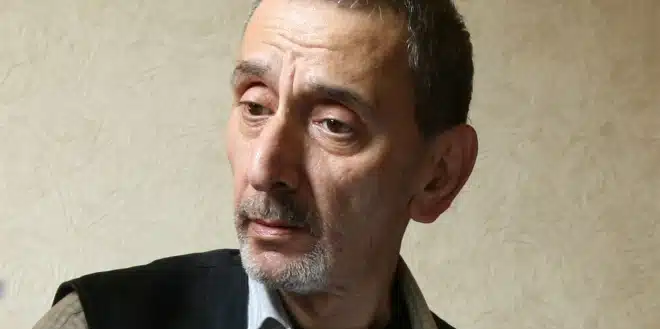Ziad Rahbani, a groundbreaking Lebanese composer, playwright, and political voice known for blending music with searing social commentary, passed away on Saturday at the age of 69. Lebanon’s National News Agency confirmed the news, while a source close to Rahbani, speaking anonymously, noted that the cause of death was not yet publicly known.
Born of Legends, Driven by Vision
Rahbani was born in 1956 in Antelias, a town just north of Beirut, into one of Lebanon’s most iconic artistic families. He was the eldest son of legendary singer Fayrouz and the late composer Assi Rahbani, one half of the celebrated Rahbani Brothers. Growing up in a household immersed in music and theater, Ziad exhibited extraordinary musical talent early on, composing his first work at just 17.
His upbringing exposed him not only to creative brilliance but also to the complexities of Lebanese identity, politics, and culture—elements that would become central themes in his creative life. Fayrouz, regarded as the most beloved and influential voice in the Arab world, often performed her son’s compositions, which merged traditional Lebanese motifs with Western musical elements such as syncopation and jazz phrasing.
Lebanese President Joseph Aoun mourned the loss, calling Rahbani “a complete intellectual and cultural phenomenon” and praising his ability to give voice to the oppressed. “Ziad was a rebellious voice against injustice, a mirror reflecting the pain of the marginalized,” Aoun said, adding that Rahbani expanded the reach of Lebanese culture through his innovative musical fusions.
A Voice for the Disillusioned in a Fractured Lebanon
While his parents’ legacy was steeped in the romanticism of Lebanon’s golden age, Ziad Rahbani struck out in a bold new direction. His work combined dark humor, political resistance, and musical experimentation, capturing the confusion and despair of a country in turmoil.
His breakout theatrical debut came in 1974 with Nazl el-Sourour (“Happiness Hotel”). Written when he was still a teenager, the play presented a sharp critique of class divisions and the indifference of Lebanon’s ruling elite. It told the story of a group of disenfranchised workers who seize a restaurant to demand better conditions, only to be ignored by those in power—a theme that would echo through much of Rahbani’s later work.
The eruption of Lebanon’s civil war in 1975 intensified the urgency in Rahbani’s voice. His plays, radio shows, and musical performances captured the rawness of daily life amid chaos. As a left-leaning Greek Orthodox, he used satire to expose the absurdities of sectarianism and the hollowness of political promises.
In one of his most acclaimed works, Bennesbeh Labokra Chou? (“What About Tomorrow?”), Rahbani played a disillusioned bar pianist drifting through post-war Beirut. The surreal and melancholic tone of the piece, punctuated by some of his most memorable compositions, offered a haunting commentary on Lebanon’s broken dreams. One unforgettable line summed up the national mood: “They say tomorrow will be better, but what about today?”
Musical Innovation that Bridged Cultures
Rahbani’s genius extended beyond theater. As a composer, he crafted a unique musical language that seamlessly wove together Arabic melodies, jazz improvisation, funk rhythms, and classical harmonies. His live shows—whether in intimate Beirut jazz clubs or grand theatrical productions—were electric and boundary-pushing.
His collaborations with his mother in the late 1970s and 1980s marked a new chapter in her artistic journey. Songs like Ouverture 83, Bala Wala Chi (“Without Anything”), and Kifak Inta (“How Are You?”) reflected his darker, more introspective influence. These works not only challenged traditional Arab musical norms but also positioned Fayrouz as a voice for resistance and resilience during Lebanon’s darkest years.
Though many applauded Rahbani’s innovative style, some traditionalists in the Arab world criticized his blending of Western and Eastern musical forms. But for Rahbani, this fusion wasn’t a rebellion—it was a reflection of Lebanon’s hybrid cultural identity.
In an interview, he once explained, “I admire the music of Charlie Parker, Stan Getz, and Dizzy Gillespie. But my music isn’t Western—it’s Lebanese, expressed in a different way.”
Enduring Legacy and Final Years
In the later years of his life, Rahbani kept a lower public profile, but his influence never faded. His plays and music found new audiences online and were embraced by younger generations seeking cultural roots and political meaning. Protesters often quoted his lyrics or used his compositions to underscore their demands for change in Lebanon.
He remained an active critic of the country’s stagnation and corruption, often expressing frustration over the lack of progress and the erosion of public trust.
Rahbani is survived by his mother Fayrouz, now 90, along with his siblings Reema and Hali. His passing prompted an outpouring of grief across Lebanon and the wider Arab world.
Lebanese pop icon Elissa echoed the sentiments of many, writing on social media: “Ziad Rahbani was not an ordinary artist… With his loss today, Lebanon has lost a part of itself and a big piece of its collective memory.”
More Than an Artist—A Cultural Force
Ziad Rahbani leaves behind a vast, genre-defying body of work that reimagined what Arab music and theater could be. He challenged political taboos, blurred cultural boundaries, and gave voice to the voiceless—all while shaping a legacy that continues to inspire long after his final curtain call.


